OSH Project : Material and guidance
This dedicated section presents documents (guidance, handbooks, training material etc…) on musculoskeletal disorders and on psychosocial risks and stress at work. Please note that this is work in progress and that this is only an indicative list which does not necessarily reflect the latest regulations and techniques.
MUSCULOSKELETAL DISORDERS
I) FROM EUROPEAN OR INTERNATIONAL INSTITUTIONS OR NETWORKS
ArjoHuntleigh – Technical Committee ISO/TC 159 – Ergonomics
![]() Manual Handling of People in the Healthcare Sector, An edited summary of ISO Technical Report 12296
Manual Handling of People in the Healthcare Sector, An edited summary of ISO Technical Report 12296
European Agency for Safety and Health at Work (EU-OSHA)
![]() Risk assessment in health care (in EN)
Risk assessment in health care (in EN)
![]() Patient handling techniques to prevent MSDs in health care (in EN, DE)
Patient handling techniques to prevent MSDs in health care (in EN, DE)
![]() European Survey of Enterprises on New and Emerging Risks-ESENER-2 (in 25 languages)
European Survey of Enterprises on New and Emerging Risks-ESENER-2 (in 25 languages)
![]() Webportal on musculoskeletal disorders (in EN)
Webportal on musculoskeletal disorders (in EN)
Eurofound
![]() Managing musculoskeletal disorders, 2007
Managing musculoskeletal disorders, 2007
![]() Working conditions and social dialogue, 2009, p83 – 91.
Working conditions and social dialogue, 2009, p83 – 91.
European Union
![]() Council Directive 90/269/EEC of 29 May 1990 on the minimum health and safety requirements for the manual handling of loads where there is a risk particularly of back injury to workers (fourth individual Directive within the meaning of Article 16 (1) of Directive 89/391/EEC) (in BG, ES, CS,DA,DE, ET, EL, EN, FR, HR, IT, LV, LT,HU, MT, NL, PL, PT, RO, SK, SL, FI, SV)
Council Directive 90/269/EEC of 29 May 1990 on the minimum health and safety requirements for the manual handling of loads where there is a risk particularly of back injury to workers (fourth individual Directive within the meaning of Article 16 (1) of Directive 89/391/EEC) (in BG, ES, CS,DA,DE, ET, EL, EN, FR, HR, IT, LV, LT,HU, MT, NL, PL, PT, RO, SK, SL, FI, SV)
European Commission-DG EMPL Social Affairs and Inclusion
![]() Occupational health and safety risks in the healthcare sector – Guide to prevention and good practice (in 22 languages)
Occupational health and safety risks in the healthcare sector – Guide to prevention and good practice (in 22 languages)
II) FROM EUROPEAN COUNTRIES
Austria
![]() ArbeitnehmerInnenschutzgesetz (in DE)
ArbeitnehmerInnenschutzgesetz (in DE)
Denmark
a) National Research Centre for the Working Environment (NRCWE):
![]() Low back injury risk during repositioning of patients in bed: the influence of handling technique, patient weight and disability, (EN summary) 2008
Low back injury risk during repositioning of patients in bed: the influence of handling technique, patient weight and disability, (EN summary) 2008
![]() Webportal “Job and body campaign” (in ENG) with good practices section (in DK)
Webportal “Job and body campaign” (in ENG) with good practices section (in DK)
b) Danish Working Environment Authority (Arbejdstilsynet):
![]() Fremtidens arbejdsmiljø 2020 (in DK), 2010
Fremtidens arbejdsmiljø 2020 (in DK), 2010
c) BrancheArbejdsmiljøRådet Social & Sundhed (BAR) -Danish Trade Unions and Employers Association :
![]() Forflytningsguide – Til ansatte på sygehuse og elever og studerende på sundhedsuddannelserne (in DK), 2011
Forflytningsguide – Til ansatte på sygehuse og elever og studerende på sundhedsuddannelserne (in DK), 2011
![]() Nye veje til den gode forflytning i hjemmeplejen (in DK), 2008
Nye veje til den gode forflytning i hjemmeplejen (in DK), 2008
![]() Forflytningspyramiden – Brug mest af det i bunden og mindst af det i toppen (in DK)
Forflytningspyramiden – Brug mest af det i bunden og mindst af det i toppen (in DK)
![]() Webportal on manual handling of patients (in DK)
Webportal on manual handling of patients (in DK)
d) Det Nationale Forskningscenter for Arbejdsmiljø (NFA):
![]() Hvidbog om sygefravær og tilbagevenden til arbejde ved muskel- og skeletbesvær Årsager og handlemuligheder (in DK), 2008
Hvidbog om sygefravær og tilbagevenden til arbejde ved muskel- og skeletbesvær Årsager og handlemuligheder (in DK), 2008
![]() Hvidbog om risikofaktorer knyttet til fysisk tungt arbejde Resume og hovedkonklusioner (in DK), 2009
Hvidbog om risikofaktorer knyttet til fysisk tungt arbejde Resume og hovedkonklusioner (in DK), 2009
![]() Forflytning i et bredere perspektiv, 2005
Forflytning i et bredere perspektiv, 2005
![]() Webportal with research on musculoskeletal disorder (in DK)
Webportal with research on musculoskeletal disorder (in DK)
Finland
a) Ministry of Social Affairs and Health, Department of Occupational Health and Safety
![]() A method for evaluating the load of patient transfers, Occupational safety and health publications 83, 2007 (in EN)
A method for evaluating the load of patient transfers, Occupational safety and health publications 83, 2007 (in EN)
b) Finnish Institute of Occupational Health
![]() A Management Model for Physical Risks in the Care Work, 2010 (in EN)
A Management Model for Physical Risks in the Care Work, 2010 (in EN)
France
a) Institut national de recherche et de sécurité pour la prévention des accidents du travail et des maladies professionnelles (INRS):
![]() Webportal with resources on MSD and back pain (in FR)
Webportal with resources on MSD and back pain (in FR)
![]() Dossier médico-technique : Travailleurs lombalgiques. Bases scientifiques des programmes de “retour au travail” (in FR), 2005
Dossier médico-technique : Travailleurs lombalgiques. Bases scientifiques des programmes de “retour au travail” (in FR), 2005
![]() Troubles musculosquelettiques et lombalgies : des maux à traiter sans improvisation, Revue Travail et Sécurité, n° 730, 08/2012, pp. 19-34 (in FR)
Troubles musculosquelettiques et lombalgies : des maux à traiter sans improvisation, Revue Travail et Sécurité, n° 730, 08/2012, pp. 19-34 (in FR)
![]() Analyse coût-bénéfice des actions de prévention : exemple du risque de manutention pour le personnel soignant, Revue Hygiène et sécurité du travail – Note Documentaire, n° 215, 06/2009, pp. 29-34 (in FR)
Analyse coût-bénéfice des actions de prévention : exemple du risque de manutention pour le personnel soignant, Revue Hygiène et sécurité du travail – Note Documentaire, n° 215, 06/2009, pp. 29-34 (in FR)
![]() Personnels soignants en milieu hospitalier : des performances sous perfusion, Revue Travail et Sécurité, n° 693, 03/2009, pp. 25-39 (in FR)
Personnels soignants en milieu hospitalier : des performances sous perfusion, Revue Travail et Sécurité, n° 693, 03/2009, pp. 25-39 (in FR)
b) Agence Nationale pour l’Amélioration des Conditions de Travail (ANACT)
![]() L’approche économique des TMS… Intégrer la prévention à la performance, 2007 (in FR)
L’approche économique des TMS… Intégrer la prévention à la performance, 2007 (in FR)
c) Association Régionale pour l’Amélioration des Conditions de Travail (ARACT) Haute Normandie; Agence Régionale de Santé Haute-Normandie (ARS)
![]() Prévenir durablement les troubles musculo-squelettiques dans les établissements de santé : outils et méthodes pour réduire l’absentéisme et favoriser le maintien dans l’emploi, (in FR) 2013
Prévenir durablement les troubles musculo-squelettiques dans les établissements de santé : outils et méthodes pour réduire l’absentéisme et favoriser le maintien dans l’emploi, (in FR) 2013
d) Association Régionale pour l’Amélioration des Conditions de Travail (ARACT) Île-de-France
![]() Aide à l’évaluation des risques professionnels en milieux de soins, 2012 (in FR)
Aide à l’évaluation des risques professionnels en milieux de soins, 2012 (in FR)
e) Direction de la recherche, des études, de l’évaluation et des statistiques (DREES)
![]() L’organisation du travail à l’hôpital : évolutions récentes, Études et résultats N° 709, 2009 (in FR)
L’organisation du travail à l’hôpital : évolutions récentes, Études et résultats N° 709, 2009 (in FR)
f) Scientific Journal “Perspectives interdisciplinaires sur le travail et la santé (PISTES)”
![]() Comprendre la manutention de patient pour la valoriser : une voie de construction de la santé des soignants, Revue Pistes, n° 1, 05/2012 (in FR, Abstract in EN, ES)
Comprendre la manutention de patient pour la valoriser : une voie de construction de la santé des soignants, Revue Pistes, n° 1, 05/2012 (in FR, Abstract in EN, ES)
![]() Instruments de manutention des malades, usage du corps et appropriation des gestes collectifs des soignants, PISTES, n° 2, 11/2009 (in FR, Abstract in EN, ES)
Instruments de manutention des malades, usage du corps et appropriation des gestes collectifs des soignants, PISTES, n° 2, 11/2009 (in FR, Abstract in EN, ES)
g) Ecole Nationale de la Santé Publique (ENSP)
![]() La gestion des risques professionnels liés aux troubles musculosquelettiques : quelle stratégie pour le directeur des soins ? 2007 (in FR)
La gestion des risques professionnels liés aux troubles musculosquelettiques : quelle stratégie pour le directeur des soins ? 2007 (in FR)
h) CHU D’ANGERS, Programme CNRACL
![]() Manutentions des patients : ergonomie des équipements, systèmes d’aide à la manutention, 2010 (in FR)
Manutentions des patients : ergonomie des équipements, systèmes d’aide à la manutention, 2010 (in FR)
Germany
a)Legal aspects:
![]() Lastenhandhabungsverordnung – LasthandhabV (in DE) (in EN)
Lastenhandhabungsverordnung – LasthandhabV (in DE) (in EN)
![]() Arbeitsschutzgesetz “Occupational Safety and Health Law” (in DE, in EN)
Arbeitsschutzgesetz “Occupational Safety and Health Law” (in DE, in EN)
b) Deutsche Gesetzliche Unfallversicherung e.V. (DGUV):
![]() Bewegen von Menschen im Gesundheitsdienst und in der Wohlfahrtspflege (in DE) 2014
Bewegen von Menschen im Gesundheitsdienst und in der Wohlfahrtspflege (in DE) 2014
Ireland
a) Health and Safety Executive for Northern Ireland (HSENI)/Health and Safety Authority (HSA)
![]() Guidance on the Prevention and Management of Musculoskeletal Disorders (MSDs) in the Workplace, 2013 (in EN)
Guidance on the Prevention and Management of Musculoskeletal Disorders (MSDs) in the Workplace, 2013 (in EN)
![]() Guidance on the Management of Manual Handling in Healthcare (in EN)
Guidance on the Management of Manual Handling in Healthcare (in EN)
b) Health Service Executive (HSE)
![]() Manual Handling and People Handling Policy (in EN)
Manual Handling and People Handling Policy (in EN)
Italy
a) INAIL
![]() I disturbi muscoloscheletrici lavorativi. La causa, l’insorgenza, la prevenzione, la tutela assicurativa, 2012 (in IT)
I disturbi muscoloscheletrici lavorativi. La causa, l’insorgenza, la prevenzione, la tutela assicurativa, 2012 (in IT)
b) Societa italiana di medicina del lavoro e igiene industriale
![]() LINEE GUIDA per la prevenzio ne delle patologi e correlate alla movimentazione manuale dei pazienti (in IT)
LINEE GUIDA per la prevenzio ne delle patologi e correlate alla movimentazione manuale dei pazienti (in IT)
Poland
a) Institute of Occupational Medicine
![]() Profilaktyka chorób układu ruchu i obwodowego układu nerwowego wywołanych sposobem wykonywania pracy. Poradnik dla lekarzy ( Prevention of musculoskeletal disorder. A guide for doctors), 2010 (in PL)
Profilaktyka chorób układu ruchu i obwodowego układu nerwowego wywołanych sposobem wykonywania pracy. Poradnik dla lekarzy ( Prevention of musculoskeletal disorder. A guide for doctors), 2010 (in PL)
b) Center for Postgraduate Medical Education in Warsaw
![]() Medycyna i higiena pracy (A guide for OSH specialists), 2011
Medycyna i higiena pracy (A guide for OSH specialists), 2011
c) The Work Foundation, Fit for work Europe, CEESTAHC
![]() Musculoskeletal disorder and Poland’s labour market, (in EN, PL) 2011
Musculoskeletal disorder and Poland’s labour market, (in EN, PL) 2011
Spain
a) Instituto Nacional de Seguridad e Higiene en el Trabajo (INSHT):
![]() A portal for prevention of musculoskeletal disorders with documents about manual handling of people (in ES)
A portal for prevention of musculoskeletal disorders with documents about manual handling of people (in ES)
![]() A good practice manual about Musculoskeletal disorders prevention in the healthcare sector (in ES), 2011
A good practice manual about Musculoskeletal disorders prevention in the healthcare sector (in ES), 2011
b) Galician Institute for health and safety at work (ISSGA):
![]() “Prevention Sheet for MHP”(in ES)
“Prevention Sheet for MHP”(in ES)
c) Vasquian Institute for health and safety at work (OSALAN):
![]() Manual handling of patients in nursing homes (in ES)
Manual handling of patients in nursing homes (in ES)
d) Institute of Labour and Public Health:
![]() Web portal for socio-sanitary sector on ergonomics and psychosocial risks (in ES)
Web portal for socio-sanitary sector on ergonomics and psychosocial risks (in ES)
![]() Prevention Program for Ergonomic and Psychosocial Risks in Social Health Sector – Final Report, 2009-2012
Prevention Program for Ergonomic and Psychosocial Risks in Social Health Sector – Final Report, 2009-2012
United Kingdom
a) NHS Employers:
![]() Rapid access to treatment and rehabilitation for NHS staff, 2012
Rapid access to treatment and rehabilitation for NHS staff, 2012
![]() Evaluating health & wellbeing interventions for healthcare staff : key findings, 2014
Evaluating health & wellbeing interventions for healthcare staff : key findings, 2014
b) NHS Employers/Health, Safety and Wellbeing Partnership Group (HSWPG):
Back in Work ‘Back pack’, 2014 :
![]() Part 1 of 6: Introduction and key messages
Part 1 of 6: Introduction and key messages
![]() Part 2 of 6: The staff guide
Part 2 of 6: The staff guide
![]() Part 3 of 6: The line managers guide
Part 3 of 6: The line managers guide
![]() Part 4 of 6: The safety representatives guide
Part 4 of 6: The safety representatives guide
![]() Part 5 of 6: Workplace and individual assessment tool
Part 5 of 6: Workplace and individual assessment tool
![]() Part 6 of 6: Further information and quick links
Part 6 of 6: Further information and quick links
Lone worker guidance:
![]() A guide for lone workers, 2013
A guide for lone workers, 2013
![]() A guide for managers, 2013
A guide for managers, 2013
![]() Guidance on prevention and management of stress at work, 2014
Guidance on prevention and management of stress at work, 2014
![]() The importance of effective partnership working on health, safety & wellbeing, 2014
The importance of effective partnership working on health, safety & wellbeing, 2014
![]() Guidelines on prevention and management of sickness absence, 2013
Guidelines on prevention and management of sickness absence, 2013
![]() Workplace Health and Safety Standards, 2013
Workplace Health and Safety Standards, 2013
![]() Health and wellbeing in healthcare settings, 2012
Health and wellbeing in healthcare settings, 2012
![]() Implementing the sharps Directive: Advice from POSHH
Implementing the sharps Directive: Advice from POSHH
![]() Welsh Manual Handling passport scheme, 2003
Welsh Manual Handling passport scheme, 2003
PSYCHO-SOCIAL RISKS AND STRESS AT WORK
I) FROM EUROPEAN OR INTERNATIONAL INSTITUTIONS OR NETWORKS
European Agency for Safety and Health at Work (EU-OSHA)
![]() Campaign Guide. Managing stress and psychosocial risks at work, 2013 (in EN)
Campaign Guide. Managing stress and psychosocial risks at work, 2013 (in EN)
![]() Managing stress and psychosocial risks e-guide (all languages)
Managing stress and psychosocial risks e-guide (all languages)
![]() Risk assessment in health care – Section 3.2 and 4.2, (in EN)
Risk assessment in health care – Section 3.2 and 4.2, (in EN)
![]() Mental health promotion in the healthcare sector – Section 2 & 3 (in EN)
Mental health promotion in the healthcare sector – Section 2 & 3 (in EN)
![]() Calculating the cost of work-related stress and psychosocial risks – Literature Review, 2014 (in EN)
Calculating the cost of work-related stress and psychosocial risks – Literature Review, 2014 (in EN)
![]() European Survey of Enterprises on New and Emerging Risks-ESENER-2 (in 25 languages)
European Survey of Enterprises on New and Emerging Risks-ESENER-2 (in 25 languages)
![]() Webportal on psycho-social risks and stress at work (in EN)
Webportal on psycho-social risks and stress at work (in EN)
Eurofound & European Agency for Safety and Health at Work (EU-OSHA)
![]() Psychosocial risks in Europe Prevalence and strategies for prevention, 2014 (in EN)
Psychosocial risks in Europe Prevalence and strategies for prevention, 2014 (in EN)
European Commission-DG EMPL Social Affairs and Inclusion
![]() Occupational health and safety risks in the healthcare sector – Guide to prevention and good practice (in 22 languages)
Occupational health and safety risks in the healthcare sector – Guide to prevention and good practice (in 22 languages)
International Labour Office (ILO)
![]() Stress prevention at work checkpoints. Practical improvements for stress prevention in the workplace, 2012 (in EN, FR, ES)
Stress prevention at work checkpoints. Practical improvements for stress prevention in the workplace, 2012 (in EN, FR, ES)
II) FROM EUROPEAN COUNTRIES
France
a) Institut national de recherche et de sécurité pour la prévention des accidents du travail et des maladies professionnelles (INRS):
![]() Dépister les risques psychosociaux. Des indicateurs pour vous guider, 2010 (in FR)
Dépister les risques psychosociaux. Des indicateurs pour vous guider, 2010 (in FR)
![]() Le point des connaissances sur le stress au travail, 2013 (in FR)
Le point des connaissances sur le stress au travail, 2013 (in FR)
![]() Évaluer les facteurs de risques psychosociaux : l’outil RPS-DU, 213 (in FR)
Évaluer les facteurs de risques psychosociaux : l’outil RPS-DU, 213 (in FR)
b) Association Régionale pour l’Amélioration des Conditions de Travail (ARACT) Île-de-France
![]() Aide à l’évaluation des risques professionnels en milieux de soins, 2012 (in FR)
Aide à l’évaluation des risques professionnels en milieux de soins, 2012 (in FR)
c) Avis du Conseil économique, social et environnemental (CESE), Journal Officiel (JO)
![]() La prévention des risques psychosociaux, 2013 (in FR)
La prévention des risques psychosociaux, 2013 (in FR)
d) Direction de la recherche, des études, de l’évaluation et des statistiques (DREES)
![]() Le panorama des établissements de santé, p11-30, 2014 (in FR)
Le panorama des établissements de santé, p11-30, 2014 (in FR)
e) Groupe Pasteur Mutualité
![]() Agir sur les risques psychosociaux des professionnels de santé, Madeleine Estryn-Behar (in FR)
Agir sur les risques psychosociaux des professionnels de santé, Madeleine Estryn-Behar (in FR)
- Note: Additional resources are also available on the EPSU website.
*** Back to main project page ***
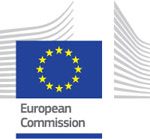 This project has received funding from the European Commission
This project has received funding from the European Commission

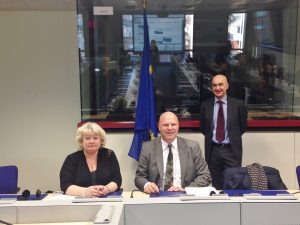
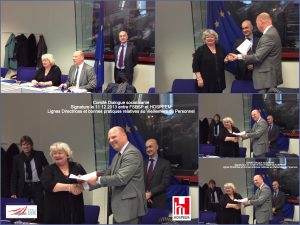
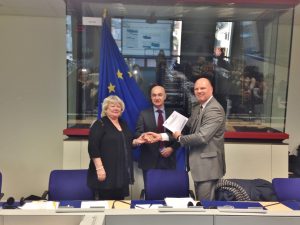

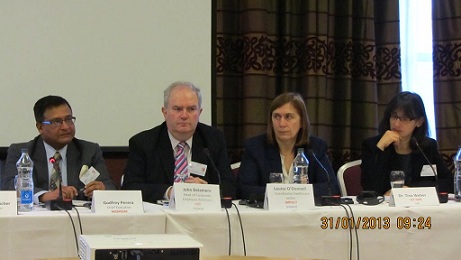
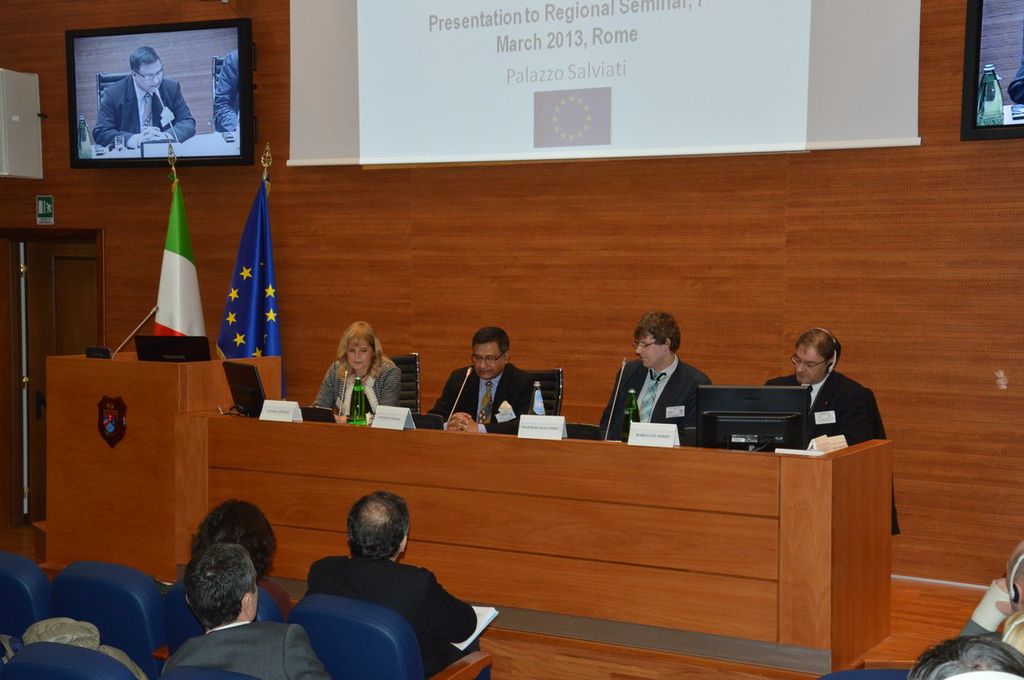
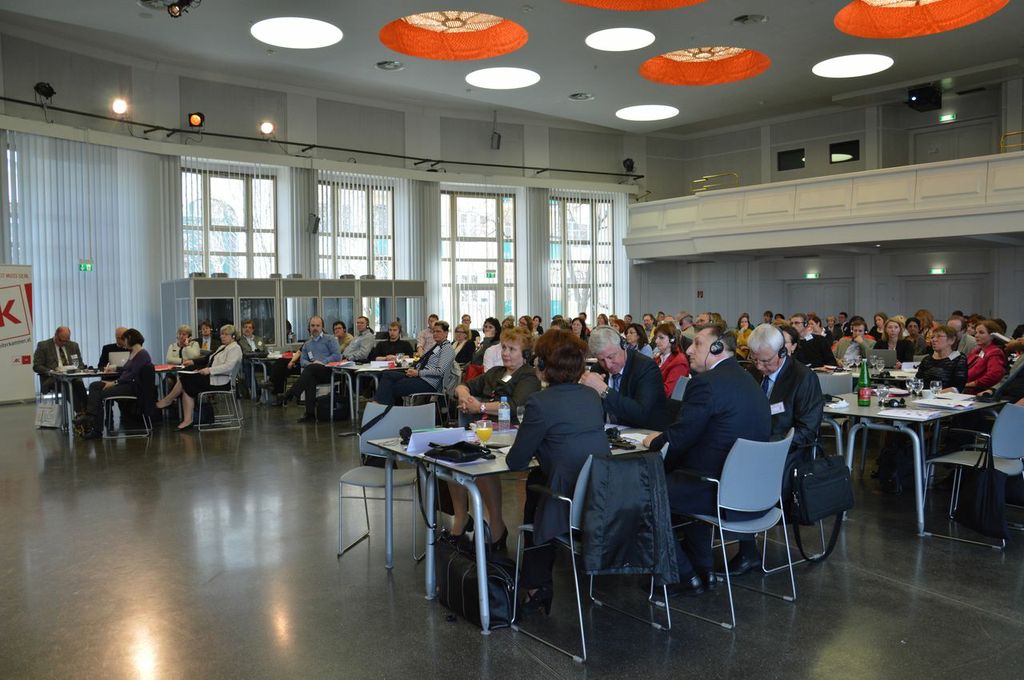
Recent Comments